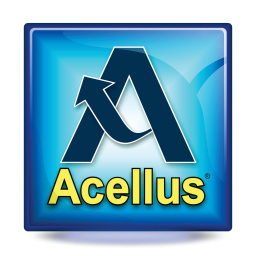Accounting II

Course Features
Course Details
Course Overview
The Accounting II course covers various topics such as financial, non-profit, and cost accounting, auditing, accounting in business, career paths, hiring trends, accounting organizations, small businesses, and technological advancements. The course also provides an overview of accounting's impact on the community, economy, and workforce, emphasizing accountability, time management, professional behavior, leadership, teamwork, and ethics through real-world examples and case studies. The course covers topics related to the fundamental accounting equation, capital, time value of money, financial institutions, lending/borrowing/investment banking, business cycle, and capital maintenance, monitoring, and control. It also covers fundamental concepts related to assets, including acquisition, disposal, and valuation, and teaches students about financing, accounting treatment, and factors that influence asset values.
Students will learn about tax accounting fundamentals, risk management, bankruptcy and credit, foreign currency and exchange rates, digital communication, 10-K filing, ethical and legal considerations, global issues affecting accounting, macroeconomics, microeconomics, essential accounting relationships, planning and control of accounting activities, and different accounting roles and challenges faced by accountants. Throughout the course, students will develop skills in using digital tools to communicate with colleagues and clients, as well as in analyzing digital data. They will also learn how to plan and control accounting activities, continually improve accounting practices, and create effective accounting presentations.
Accounting II is taught by Acellus Instructor Mark Rogers.Sample Lesson - Is Accounting for Me?
 This course was developed by the International Academy of Science.
Learn More
This course was developed by the International Academy of Science.
Learn More
Scope and Sequence
Unit 1 - Accounting Basics This unit will cover various aspects of accounting, including financial accounting, non-profit accounting, cost accounting, auditing, and comparing the different types of accounting. Students will also learn about accounting in business, accounting careers, and whether accounting is a suitable career path for them. Additionally, the unit will explore trends in hiring for accountants, accounting organizations and associations, accounting in small businesses, and technological advancements in accounting.
Unit 2 - Characteristics of Accountants This unit provides an overview of accounting's impact on the community, economy, and workforce. Students will explore the importance of accountability in accounting, the role of time management in accounting, and the professional behavior of accountants. They will also learn about leadership and teamwork in accounting, as well as accounting ethics and the importance of diversity in the field. Through case studies and real-world examples, students will gain a deeper understanding of how accounting plays a vital role in society and how accountants can make a positive impact in their communities.
Unit 3 - Capital in Accounting This unit covers the fundamental accounting equation, which includes capital. Students will learn about the time value of money and the present value of potential asset acquisitions. The role of financial institutions in accounting, their functions, and responsibilities will be explored. Lending and borrowing practices, as well as investment banking in accounting, will be discussed. Additionally, the unit covers the business cycle in accounting, leading, lagging, and coinciding indicators. Students will learn about maintaining, monitoring, and controlling capital, including planning for the use of capital and capitalizing a start-up or venture.
Unit 4 - Assets This unit covers the fundamental concepts related to assets, including their acquisition, disposal, and valuation. Students will learn about the process of acquiring assets, including the various methods used to finance these acquisitions. The unit also explores the process of disposing of assets, including the different methods of disposal and the accounting treatment of asset sales. In addition, the unit covers the various factors that influence asset valuation, including industry trends, timing, interest rates, opportunity cost, and risk. Students will learn how these factors impact asset values and the methods used to calculate the value of assets.Unit 5 - Tax Accounting In this unit, students will learn the fundamentals of tax accounting, including the rules and regulations that govern the payment of income and capital gains taxes. They will learn how to journalize income tax payments and capital gains tax payments, as well as explore accounting strategies to minimize tax liabilities. Students will also examine corporate avoidance and penalties for tax evasion. In addition, students will study a real-life case study of Alpha Industries to better understand the practical application of tax accounting principles.
Unit 6 - Risk Management in Accounting This unit covers the basics of risk management in accounting and its significance in financial decision-making. Students will learn how to manage risks in accounting, including identifying potential risks, assessing the likelihood of those risks, and developing strategies to mitigate those risks. The unit will cover various techniques such as journalizing insurance expense, journalizing insurance transactions, actuarial sciences in accounting, and concentration risk for suppliers and customers. The unit also introduces students to different approaches to risk management, such as risk reduction, risk assumption, risk avoidance, and risk shifting.
Unit 7 - Bankruptcy in Accounting In this unit, you will learn about the concepts of bankruptcy and credit, which are essential in the field of accounting. Students will be introduced to the definition of bankruptcy and how it affects individuals and businesses. Additionally, students will learn how to journalize refinancing transactions, which is a critical process in the management of debts and financial obligations, how the stock market can signal bankruptcy, the concept of leverage and free cash flow in bankruptcy, and the role of bankruptcy law in protecting debtors and creditors. Students will learn how to make choices regarding credit, including the cost of credit and credit ratings. Lastly, explore the process of exiting chapter 11 bankruptcy, including the steps that companies must take to recover from financial distress and restructure their debt.
Unit 8 - Accounting in Foreign Markets This unit explores the impact of foreign currency and exchange rates on accounting. Students will learn about currencies in accounting, exchange rate conversions for foreign currency, and how interest rates impact exchange rates. They will also learn about the impact of exchange rates on foreign trade and how inflation affects exchange rates. Students will gain an understanding of transferring funds in foreign currencies and how foreign currency hedges can be used to manage risk. They will also explore the federal reserve's role in foreign exchange and how it affects the global economy. Finally, students will learn about the growing importance of cryptocurrency in accounting and how it is changing the landscape of international business. Through this unit, students will gain a comprehensive understanding of the impact of foreign currency and exchange rates on accounting, and the tools and strategies that can be used to manage risk in an increasingly globalized world.
Unit 9 - Accounting Communication This unit will introduce students to various forms of digital communication in accounting, including asynchronous and synchronous methods, as well as the barriers that may impact the effectiveness of communication. Students will learn how to adapt their communication style to suit their audience and how to communicate appropriately and legally using digital media. They will also explore how to interpret verbal and nonverbal cues in digital communication, as well as the use of digital media in accounting practices. The unit will also cover the importance of digital communication in career planning and how networks can be used to problem-solve in the accounting field. Students will develop skills in using digital tools to communicate with colleagues and clients, as well as in interpreting and analyzing digital data.
Unit 10 - Exploring the 10-K This unit provides an in-depth exploration of the 10-K filing and its importance for investors and analysts in making informed decisions. Students will learn to discern the quality of a 10-K filing, how to analyze financial ratios from the 10-K, and make informed decisions based on the data presented in the document. Students will also learn how to compare longitudinal and competitor 10-Ks, collaborate to produce a 10-K, and understand the records retention requirements for the 10-K. The unit will also cover how to interpret equations, graphs, and infographics included in the 10-K to better understand a company's financial health.
Unit 11 - Accounting Ethics This unit covers important ethical and legal considerations in accounting. Students will learn about the differences between conservative and optimistic accounting practices and the implications of each approach. The unit also covers insider trading and the importance of auditing independence to ensure accurate financial reporting. Students will become familiar with the rules and regulations that govern auditors, as well as the penalties for ethical breaches. The unit also discusses the accounting oath and the role of whistleblowers in maintaining accounting standards. In addition, students will explore the field of forensic accounting and its relationship to auditing, as well as the methods for protecting against identity theft in the accounting industry. Finally, the unit covers quality assurance in accounting and the importance of maintaining high standards of professional conduct.
Unit 12 - Global Impact of Accounting In this unit, we will explore the global issues that impact accounting and how accounting has a worldwide reach. Students will focus on the International Financial Reporting Standards (IFRS) and why they are important in today's global economy. Students will examine the changes to IFRS and the accountability that comes with them. In addition, compare IFRS to Generally Accepted Accounting Principles (GAAP), which is the accounting standard used in the United States. Students will look at accounting before IFRS and the impact that IFRS has had on accounting practices globally.
Unit 13 - Economics' Role in Accounting This unit covers fundamental concepts and theories in macroeconomics and microeconomics. Students will learn about the principles of supply and demand and how they affect pricing in a market economy. The concept of economies of scale and scope will be explored, including how businesses can reduce their costs by producing more or diversifying their product offerings. Students will also learn about inflation and how it impacts the purchasing power of money. The unit will cover the calculation and importance of gross domestic product (GDP), as well as how interest rates affect business funding and consumer spending. Opportunity cost, a key concept in economics, will be introduced and analyzed. Students will also learn about the economic factors of production, including land, labor, and capital. The unit will conclude with an exploration of the Phillips curve and the Laffer curve, two important economic theories that explain the relationship between inflation, unemployment, and tax rates.
Unit 14 - Relationships In Accounting In this unit, students will learn about the various accounting relationships that are essential for business success. They will explore the importance of developing professional workplace relationships and how it impacts the accounting relationships with customers, suppliers, investors, and banks. Students will also learn about balancing business objectives through accounting, and managing human resources through accounting. They will understand how accounting information can be used to make strategic business decisions, and how it can be used to develop capacity in accounting.
Unit 15 - Planning and Control Cycle for Accounting In this unit, students will learn about planning and control for accounting, with a focus on identifying objectives and developing strategies to achieve those objectives. They will learn how to evaluate different strategies and consider alternative options, and then implement the chosen strategy. The unit will also cover how to determine the performance of the strategy, conduct a gap analysis to identify areas for improvement, and create a corrective action plan. Finally, students will learn how to iterate the planning and control process to continually improve the accounting practices of an organization.
Unit 16 - Accounting Proficiency, Entrepreneurship, and Safety In this unit, students will learn about the various roles of accountants in the workforce, including certified public accountants, self-employed accountants, and entrepreneurial accountants. Students will explore the challenges that accountants face in their day-to-day work, both predictable and unpredictable, and learn strategies for solving these challenges. Students will also discuss the importance of workplace safety and ergonomics in the accounting profession, including how to avoid workplace injuries and implement ergonomic solutions. As the accounting profession continues to evolve, students will examine the importance of adaptation and the skills needed to thrive in this dynamic field. Students learn about effective accounting presentation design.






